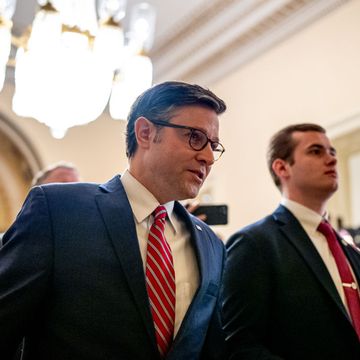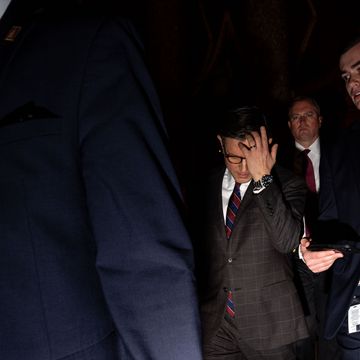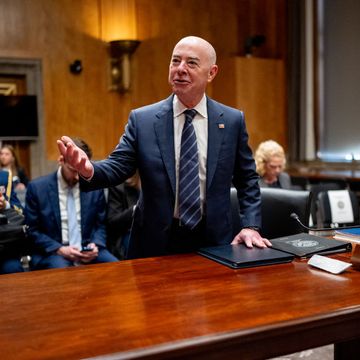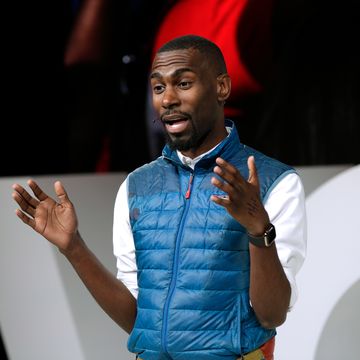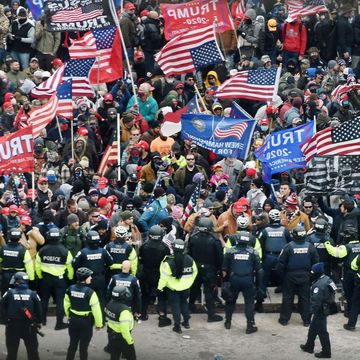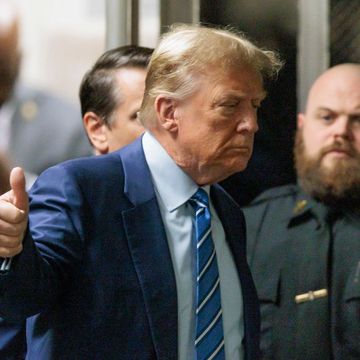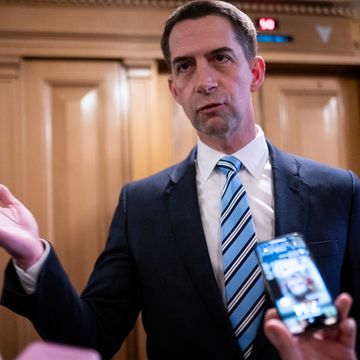Between 1750 and 1860, the British Parliament passed a series of laws called The Inclosure Acts. The point of these laws was to repurpose open fields that had heretofore been treated as part of the Commons by the British peasantry. Traditionally, the peasants were able to farm these large areas and graze what animals they had there. They were also allowed to range freely over what were called "wastes," which were swampy, unproductive places in which the rural poor could fish, or gather firewood, or do whatever they needed to do to keep body and soul together.
(In an informal way, this had been going on for years, as had ineffective attempts by the peasantry to assert their traditional rights. Kett's Rebellion of 1549 was a protest against the enclosure of common land by the gentry and it was centered in the unfortunately named town of Mousehold. The Midland Revolt in 1607 also had the enclosure of common land as its casus belli.)
The Inclosure Laws ended all that, destroying part of the idea of the Commons along the way. The fields were fenced in, and the most productive of them parceled off to wealthy landowners and to those with serious political connections. This was great for agriculture and a lousy deal for the peasants, who were left with a series of unpleasant options. These included emigration, or internal migration to cities that were rapidly becoming hopelessly overcrowded and in which the luckier ones among the displaced would find work in the dark, Satanic mills that were just then accelerating toward the Industrial Revolution, or, finally, grubbing out a life as a tenant farmer for the rich people to whom what previously had been common land had been parceled off. Among other things, this set in stone a grotesquely unbalanced landlord-tenant system throughout the agricultural economy of the United Kingdom. This, as we know from our history, worked out splendidly in Ireland. The basic philosophy of the Inclosure Acts was applied generally throughout the British Empire. The effect on indigenous populations was not a good one.
(A lot of the peasants who emigrated came to America, to which they brought a deep distrust of distant autocratic power. This came in handy in 1776.)
If the peasant wanted to continue to farm any land at all, he often had to sign a contract with one of the wealthy landowners to do so. This pretty much made him a serf. (In fact, some historians have likened the Inclosure system to a rudimentary experiment in what Stalin eventually would do with his collective farms.) His livelihood, and that of his family, depended on the landlord's whims. The peasant essentially was paid (poorly) in the crops he grew, and not in actual money. In 1770, Oliver Goldsmith wrote the epic poem, The Deserted Village,in which he described the effect of enclosure on the people who had lived off the land.
Amidst thy desert walks the lapwing flies,/And tires their echoes with unvaried cries./Sunk are thy bowers, in shapeless ruin all,/And the long grass o'ertops the mouldering wall;/And, trembling, shrinking from the spoiler's hand,/Far, far away, thy children leave the land.
In the American South, in the aftermath of the Civil War, partly as a vehicle to re-establish a system of white supremacy over the freed slaves, there developed a distinctly American form of the enforced tenant farming that had resulted in England from the Inclosure Acts. It was called "sharecropping." The tenant was allowed to farm some land at the behest of a landlord, and his compensation was that he got to keep some of what he grew. The sharecropper bought everything he needed to grow the crops from the landlord, who extended him credit. What he borrowed was deducted from his payment at harvest time. The sharecropper rarely got ahead, which was the whole point.
As part of the sharecropping system, the sharecropper had to sign a contract with his landlord, just as the British peasants did. (The fact that many sharecroppers were illiterate was considered to be irrelevant.) The landlord would sign his name. The sharecropper would sign with an X. "His mark," the contract would say. A sharecropping contract from 1867 gives you a good idea of what the system was like.
The said parties of the second part, have agreed and do by these presents agree and bind themselves to work for the said party of the first past during the year 1867, on the farm belonging to said party of the first part near Early Grove on said County upon the following terms and conditions to Wit the said Cooper Hughs Freedman with his wife and one other woman, and the said Charles Roberts with his wife Hannah and one boy are to work on said farm and to cultivate forty acres in corn and twenty acres in cotton, to assist in putting the fences on said farm in good order and to keep them so and to do all other work on said farm necessary to be done to keep the same in good order and to raise a good crop and to be under the control and directions of said IG Bailey and to receive for their said services one half of the cotton and one third of the corn and fodder raised by them on said farm in said year 1867 and the said Charles Roberts Freedman with his wife Hannah further agrees and binds themselves to do the washing and Ironing, and all other [2] necessary house work for said IG Bailey and his family during said year 1867 and to receive for their said services fifty dollars in money at the expiration of said year 1867 and the said Cooper Hughs Freedman further agrees and binds himself to give the necessary attention of feeding the Stock of cattle and milking the cows twice daily belong to said IG Bailey, and do the churning when ever necessary during the said year.
Both in England and here, the systems described had as their basic political assumption what we now have come to know as the maker-taker attitude toward our fellow members of the human race. The systems were about control as much as they were about agriculture, and they were about the control of people as much as they were about the control of crops. Which brings us up through the mists of history to...Paul Ryan's latest scam.
On Thursday, the zombie-eyed granny starver from the state of Wisconsin went to the American Enterprise Institute -- and there's one of your tells right there -- to reboot his public image as a serious man of serious ideas. This image took quite a beating over the past decades as he produced budget after budget that were economically illiterate and politically suicidal. Then he ran for vice-president with G.I. Luvmoney at the top of the ticket, and Joe Biden laughed at him, and that was pretty much that. Since then, Ryan has been fashioning an entirely new persona for himself as the Republican who cares about the poor. On Thursday, he announced his new anti-poverty initiative.It has been received fairly well. Ezra Klein has at least one foot backon the Paul Ryan Is A Serious Thinker bandwagon.
Ryan is, at heart, more interested in reforming government programs than in simply cutting them. When deficits exploded after the financial crisis he used deficit-reducing budgets as the vehicle for far-reaching reforms. Now that deficits are lower and poverty is more salient, he's using poverty as a vehicle for far-reaching reforms. The constant thread in Ryan's career isn't his concern for budgets but his efforts to overhaul the safety net.
And I am the Tsar of all the Russias.
On his electric teevee show, Lawrence O'Donnell found 101 different ways to talk about what "a good start" this plan is. (Ryan himself is hedging, calling the plan a "discussion draft." Guess who's leading the discussion?) There are ideas within the stated plan to which I have no objection: the expanded Earned Income Tax Credit, prison reform, etc. There is also one major and insurmountable flaw in the plan, and that is that Paul Ryan is a consummate charlatan, the fact that he has discovered a new formula for snake oil notwithstanding.
One must never forget when discussing anything Paul Ryan says about economics that he fundamentally does not believe that the care of the poor and the sick is a legitimate function of government. This belief is theological. It is the basis for his entire political career. And it has not changed. This is a philosophy he developed while going to high school and college on my dime and yours through Social Security survivor benefits, and you're welcome again, dickhead. Anybody who thinks Paul Ryan has "changed" in any substantive way should not be allowed out in public without a minder. In this recent scam, the tells are scattered everywhere, and they are obvious, and you don't even have to know that the more "compassionate" of his proposals don't have fk all chance of getting through the monkeyhouse Congress in which he is a leader. He knows that, too.
For example, let us look at the tinpot re-branding of block grants as "opportunity grants." (And here we once again must refer to the words of Mr. S. Spade of San Francisco: "The cheaper the crook, the gaudier the patter.") Ryan says, yes, block grants sucked before, when Saint Ronnie used them as a means to destroy programs he didn't like, but they will work now because - Paul Ryan.
"This isn't really exactly a block grant, where you cut a check to the state and call it a day." Funds would have to be spent on the poor - "no funny business. It would be budget neutral, and not a penny less."
No funny business!
Ezra Klein believes that these might work, if properly structured,
Similarly, Ryan's "Opportunity Grants", though missing key details, might have merit if thoughtfully constructed: few think the government's dizzying array of poverty programs are perfectly structured, and in an age where Washington is deeply gridlocked, handing a set of pilot states more flexibility to experiment more rapidly makes sense. The hard questions here are how to manage the growth of the grants when the economy turns down, how to define the kinds of limits and evaluations that need to be followed (i.e., can a governor force grant recipients to submit to a weekly drug test and home inspection?), and whether Ryan is really committed to the intensely paternalistic life plan model.
First of all, block grants to the states suck. They always have and they always will, and Paul Ryan knows this, which is why he gave them a pretty new name in the first place. And, with the spectacularly cruel example of how governors turned down FREE MONEY! rather than insure the health of their poorer citizens, what pilot states would Klein suggest? Rick Scott's Florida? Paul LePage's Maine? Bobby Jindal's Louisiana? Mississippi? But it is that last part that gives the game away. Ryan suggests that, in return for the shrinking benefits available to them through the "opportunity grants," poor Americans bind themselves to a "contract" regarding how they live their lives: "a contract outlining specific and measurable benchmarks for success...sanctions for breaking the terms of the contract."
Paternalism doesn't change through the ages. It just dresses differently. And there, ultimately, is Paul Ryan's new political persona. He's the poor person's landlord, enclosing the fields. He's the man who brought sharecropping to the welfare state.

Charles P Pierce is the author of four books, most recently Idiot America, and has been a working journalist since 1976. He lives near Boston and has three children.


